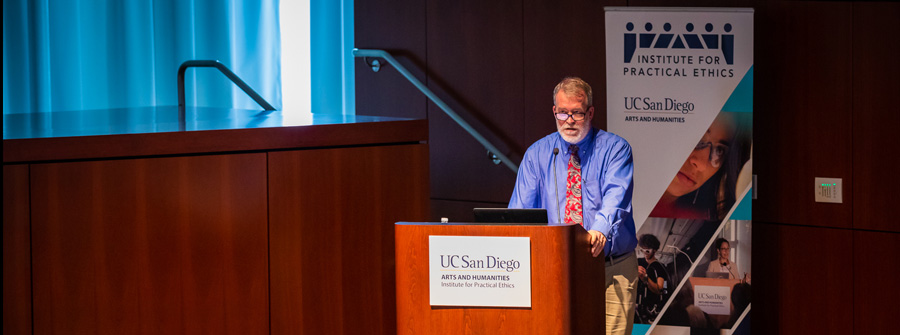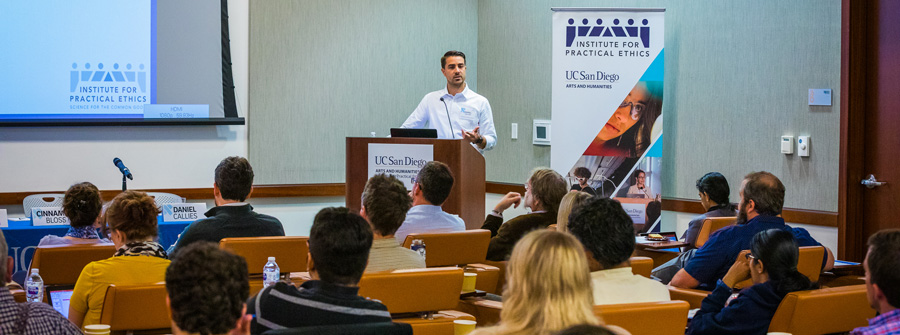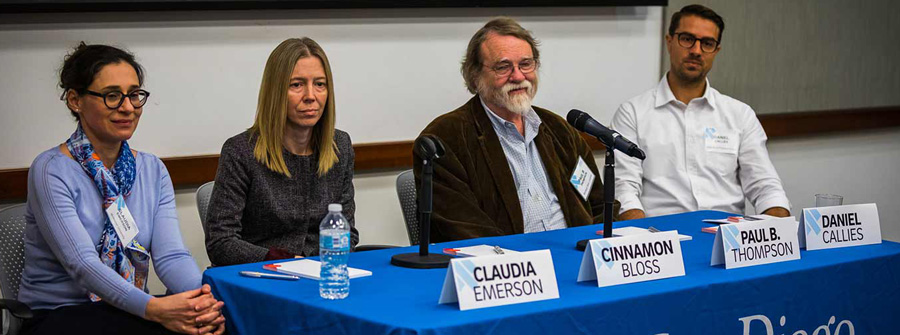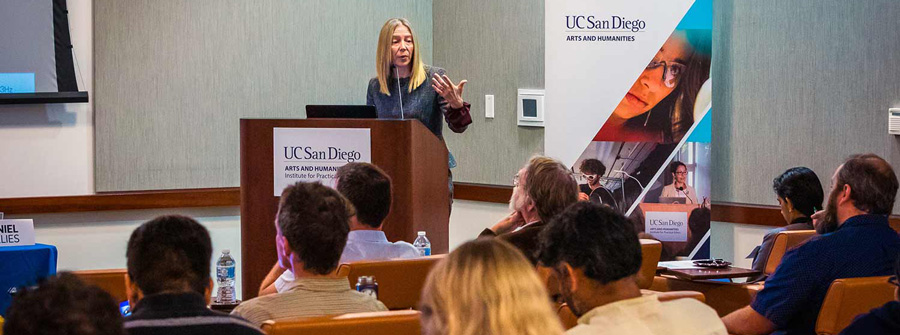Ethics and Social Implications of Gene Drives
May 9-10, 2019 | Roth Auditorium | Sanford Consortium
The UC San Diego Institute for Practical Ethics hosted its inaugural conference on the ethics and social implications of gene drives May 9-10, 2019, bringing together leading scientists and ethicists working toward a better understanding of what happens when—not if—genetic engineering becomes increasingly commonplace.
In what will become an annual conference, the overarching aim is to develop and promote research on ethical issues facing the public in regards to genetic engineering technology, with a special emphasis on fostering deliberation between ethicists, scientists and policymakers: a key component of the institute’s mission
The two-day conference began with a public presentation and discussion led by Ronald Sandler, chair of Northeastern University’s Department of Philosophy and Religion and director of their Ethics Institute. Sandler focused on the use of gene drives as a means to pursue environmental conservation.
Ten researchers presented components of their work the following day, followed by three panel discussions with invited attendees.
Plenary Address
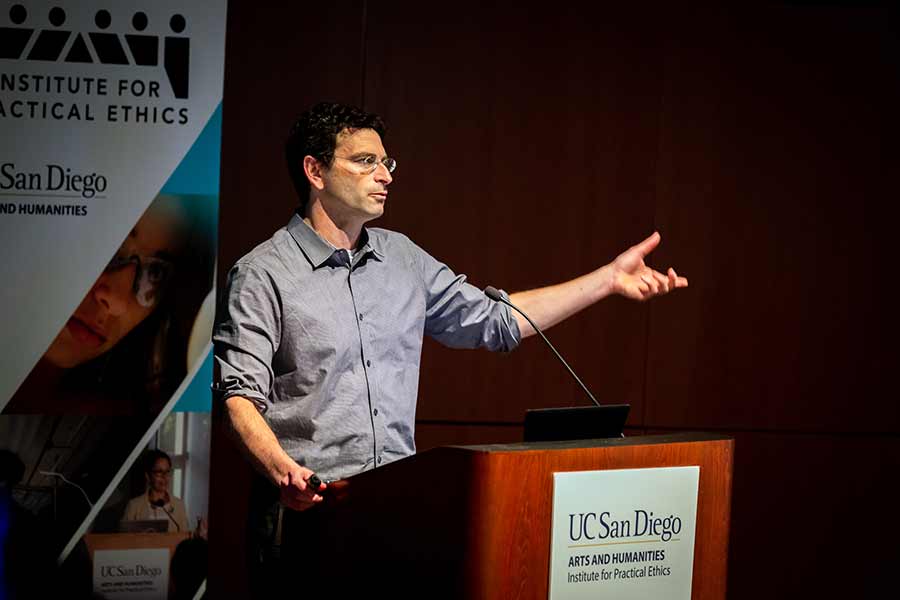 "The Ethics of Using Gene Drives in Conservation"
"The Ethics of Using Gene Drives in Conservation"
Speaker: Ronald Sandler, Northeastern University
Abstract: The idea of engineering genetic changes into wild populations in order to pursue conservation aims is gaining proponents. The gene editing techniques that underlie this possibility are developing quickly. They are much more powerful than prior technologies, in the sense of increasing the range of ways and ease with which humans can intentionally modify the biological world at the genomic level. What is not developing nearly so fast is the capacity to analyze and evaluate the significance of adopting these technologies in conservation contexts. The aim of this talk is to provide a framework for identifying the full range of ethical issues associated with the new conservation possibilities that synthetic genomics, and gene drives in particular, provide.
Ronald Sandler is a professor of philosophy, chair of the Department of Philosophy and Religion, and director of the Ethics Institute at Northeastern University. His primary areas of research are environmental ethics, ethics and emerging technologies, ethical theory and Spinoza. A recipient of Northeastern University’s Excellence in Teaching Award, he is the author of many articles and books, including "Environmental Ethics: Theory in Practice."
Agenda
Date: May 10, 2019
Location: Sanford Consortium, UC San Diego
Agenda
8:30 – 9:00 am: Breakfast
9:00 – 9:15 am: Welcome: John Evans and Craig Callender, Co-Directors
9:15 – 11:45 am: Panel 1
- 9:15 – 9:45 am: Daniel Callies, Bednets or Biotechnology: Prioritizing Current or Future Persons?
- 9:45 –10:15 am: Paul B. Thompson, Social Amplification of Gene Drive Risks: Bioethics Beyond Informed Consent
- 10:15 – 10:45 am: Cinnamon Bloss, Genetic Engineering in the Golden State: California Residents’ Diverse Perspectives on Gene Drives for Vector Control
- 10:45 – 11:15 am: Claudia Emerson, The Ethics of Using Gene Drive for Malaria Elimination: The Philosophical and The Practical
- 11:15 – 11:45 am: Panel 1 Discussion
11:45 am – 1:00 pm: Lunch
1:00 – 3:00 pm: Panel 2
- 1:00 – 1:30 pm: Jennifer Kuzma, Integrating Science and Values in Risk Governance and Regulatory Review of Gene Drives
- 1:30 – 2:00 pm: Christopher Preston, What’s New, What’s Old, and What’s Resonating in the Nascent Ethics of Gene Drives Discussion
- 2:00 – 2:30 pm: Ramya Rajagopalan, Ecologies of Susceptibility: Gene Drives, Values, and Ethical Orientations
- 2:30 – 3:00 pm: Panel 2 Discussion
3:00 – 3:15 pm: Coffee Break
3:15 – 5:15 pm: Panel 3
- 3:15 – 3:45 pm: Yasha Rohwer, Gene drives, Species, and Compassion for Individuals in Conservation Biology
- 3:45 – 4:15 pm: Amy Zhou, Perceptions of Risk Among Gene Drive Stakeholders: Scientists, Conservationists, and Global Health Professionals
- 4:15 – 4:45 pm: Samuel Weiss Evans, Science Governance through Anomaly-Handling: The Case of Gene Drives
- 4:45 – 5:15 pm: Panel 3 Discussion
5:15 – 5:30 pm: Wrap-up, Discussion, and Concluding Remarks: Craig Callender, Co-Director
